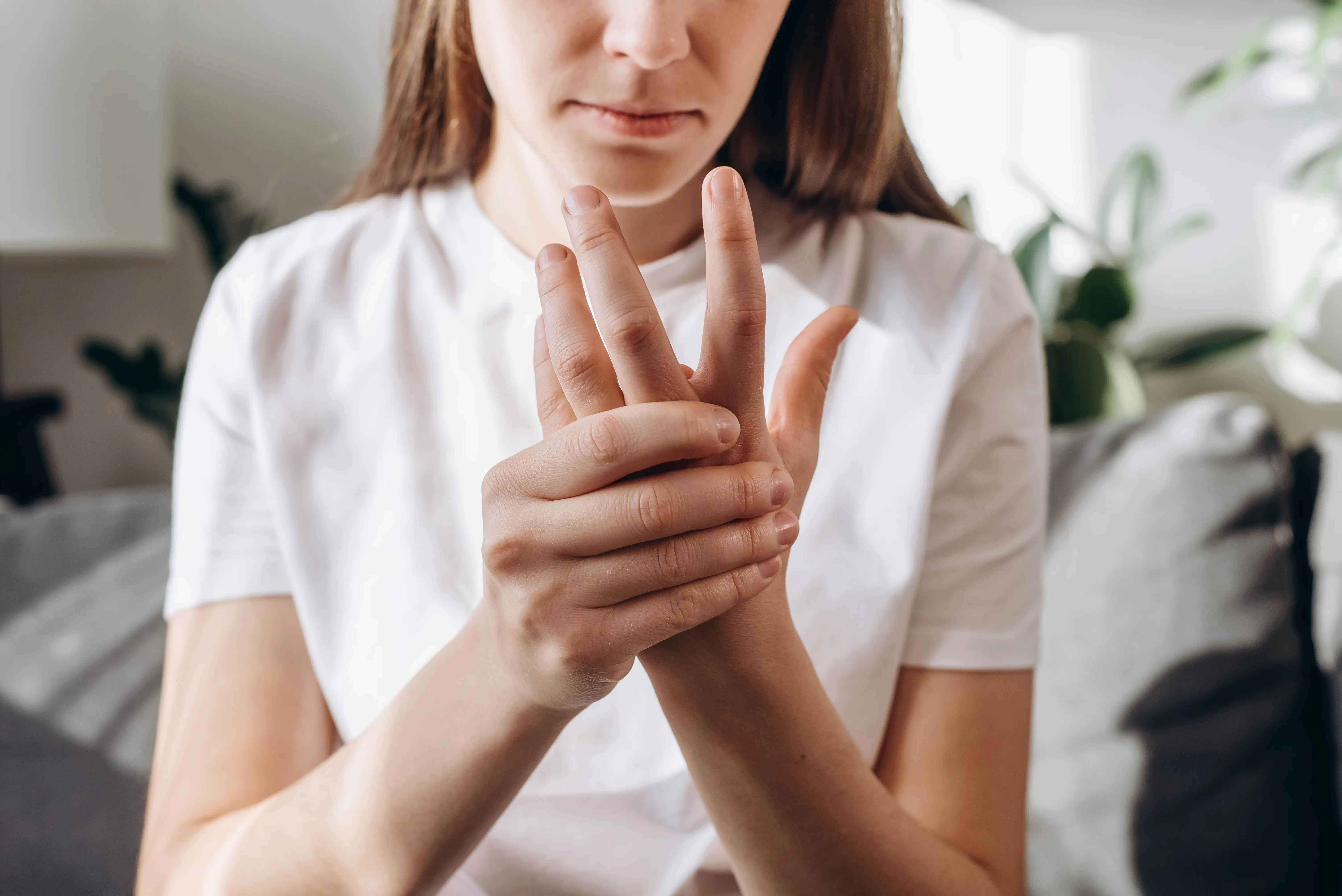Humidity's Role In Rheumatoid Arthritis Symptoms
Explore humidity's role in rheumatoid arthritis symptoms, its impact on joint pain, and tips to manage weather-related flare-ups effectively.

Written by Dr. M L Ezhilarasan
Reviewed by Dr. Rohinipriyanka Pondugula MBBS
Last updated on 25th Jul, 2025

Rheumatoid arthritis (RA) is a chronic autoimmune disease that causes joint pain, swelling, and stiffness. Many patients with RA report that changes in weather, especially humidity, can worsen their symptoms. If you've ever noticed your joints aching more on a humid day, you're not alone. In this article, we’ll explore how humidity impacts RA and what you can do to manage it better.
How Does Humidity Affect Rheumatoid Arthritis?
Humidity refers to the amount of moisture in the air. High humidity levels can make the air feel heavy and damp, while low humidity can make it dry. For people with RA, both high and low humidity can trigger discomfort, but in different ways:
1. High Humidity and RA
Increased Joint Swelling: Moisture in the air can cause tissues to expand, leading to more swelling in already inflamed joints.
Stiffness and Pain: Many RA patients report feeling stiffer and more achy in humid conditions.
Fatigue: High humidity can make the body work harder to regulate temperature, increasing fatigue.
2. Low Humidity and RA
Dry Joints: Low humidity can dry out synovial fluid (the lubricant in joints), making movements painful.
Skin Irritation: Dry air can worsen skin conditions linked to RA, such as rashes or psoriasis.
While research is still ongoing, many patients experience these effects, making weather an important factor in managing RA symptoms.
To Know More Consult Top Specialists
Why Does Humidity Trigger RA Symptoms?
The exact reason why humidity affects RA is not fully understood, but possible explanations include:
Barometric Pressure Changes: Shifts in air pressure (common before rain or storms) may expand tissues, pressing on nerves and increasing pain.
Inflammation Response: Humidity may influence the body’s inflammatory processes, worsening joint discomfort.
Reduced Activity: People may move less in extreme weather, leading to stiffness and muscle weakness.
Tips to Manage RA Symptoms in Humid Weather
While you can’t control the weather, you can take steps to minimise its impact on your RA:
1. Stay Hydrated
Drink plenty of water to keep joints lubricated.
Avoid excessive caffeine or alcohol, which can dehydrate you.
2. Maintain a Comfortable Indoor Environment
Use a dehumidifier in high humidity to reduce dampness.
In dry weather, a humidifier can help keep joints from drying out.
Keep your home at a stable, comfortable temperature.
3. Gentle Exercise
Low-impact activities like swimming, yoga, or walking can keep joints flexible.
Avoid overexertion in extreme weather.
4. Dress Appropriately
Wear breathable, moisture-wicking fabrics in high humidity.
Layer clothing to stay warm in cold, damp conditions.
5. Pain Management Techniques
Apply warm compresses to stiff joints in cold, damp weather.
Use cold packs if swelling worsens in heat.
Over-the-counter pain relievers (as advised by your doctor) can help.
6. Monitor Weather Changes
Check weather forecasts to prepare for high or low humidity days.
Adjust activities accordingly—rest more on days when symptoms flare.
When to See a Doctor?
If humidity consistently worsens your RA symptoms, consult your rheumatologist. They may adjust your treatment plan or suggest additional therapies like:
Physical therapy to improve joint mobility.
Medication adjustments to better control inflammation.
Lifestyle modifications tailored to your needs.
If you're experiencing frequent flare-ups, consider booking a consultation with a specialist through Apollo 24|7 for personalised advice.
Conclusion
Living with rheumatoid arthritis can be challenging, especially when weather changes affect your symptoms. While humidity may play a role in joint pain, being proactive with hydration, exercise, and a comfortable environment can help you stay ahead of discomfort. Listen to your body, adjust your routine as needed, and don’t hesitate to seek medical support when necessary.
If you need expert guidance, Apollo 24|7 offers convenient online consultations with rheumatologists who can help you manage RA effectively. Stay informed, stay comfortable, and take control of your health!
Consult Top Specialists
To Know More Consult Top Specialists

Dr. Syed Ismail Ali
General Practitioner
7 Years • MBBS
Hyderabad
Apollo 24|7 Clinic, Hyderabad

Dr D M Karthik
General Practitioner
4 Years • MBBS, Fellowship in Diabetes Mellitus, Advance certificate in Diabetes Mellitus, Derma Nutrition Certification
Visakhapatnam
Apollo 24|7 Clinic - Andhra Pradesh, Visakhapatnam

Dr. M L Ezhilarasan
General Practitioner
6 Years • MBBS
Visakhapatnam
Apollo 24|7 Clinic - Andhra Pradesh, Visakhapatnam

Dr. Mohammed Kamran
General Practitioner
5 Years • MBBS, FIDM
Nashik
Apollo 24|7 Clinic - Maharashtra, Nashik

Dr. D Bhanu Prakash
General Practitioner
10 Years • MBBS, AFIH, Advanced certificate in critical care medicine, Fellowship in critical care medicine
Hyderabad
Apollo 24|7 Clinic, Hyderabad
Consult Top Specialists

Dr. Syed Ismail Ali
General Practitioner
7 Years • MBBS
Hyderabad
Apollo 24|7 Clinic, Hyderabad

Dr D M Karthik
General Practitioner
4 Years • MBBS, Fellowship in Diabetes Mellitus, Advance certificate in Diabetes Mellitus, Derma Nutrition Certification
Visakhapatnam
Apollo 24|7 Clinic - Andhra Pradesh, Visakhapatnam

Dr. M L Ezhilarasan
General Practitioner
6 Years • MBBS
Visakhapatnam
Apollo 24|7 Clinic - Andhra Pradesh, Visakhapatnam

Dr. Mohammed Kamran
General Practitioner
5 Years • MBBS, FIDM
Nashik
Apollo 24|7 Clinic - Maharashtra, Nashik

Dr. D Bhanu Prakash
General Practitioner
10 Years • MBBS, AFIH, Advanced certificate in critical care medicine, Fellowship in critical care medicine
Hyderabad
Apollo 24|7 Clinic, Hyderabad
